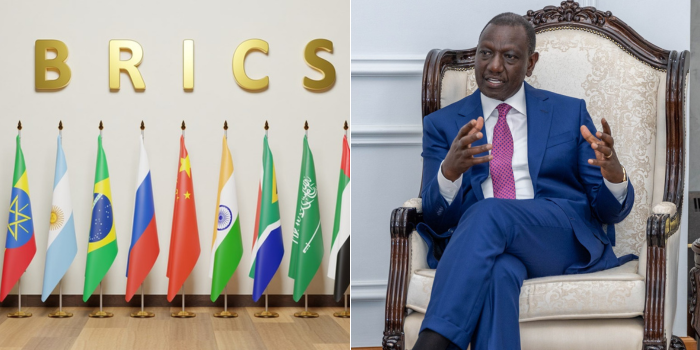Why the Adani Deal with JKIA Could Be Painful for Taxpayers
The recent proposal by the Adani Group to manage and operate Jomo Kenyatta International Airport (JKIA) has sparked intense debate and concern among Kenyans. As details of the deal emerge, many are questioning what it means for the future of Kenya's aviation sector and the potential financial implications for taxpayers. In this article, we will explore the key elements of the Adani proposal, the potential risks involved, and the broader impact on the Kenyan economy.

Understanding the Adani Proposal
The Adani Group, a conglomerate established in 1988, has put forward a proposal to manage Jomo Kenyatta International Airport (JKIA) under a 30-year agreement. This bid has been submitted through a privately initiated proposal (PIP) to the Kenya Airports Authority. While the proposal presents potential opportunities, it also raises several concerns for the Kenyan public.
One significant issue is the potential financial burden on taxpayers. If the Adani Group takes over the management of JKIA, new loan agreements will likely be established, and the responsibility for repaying these loans will ultimately fall on the Kenyan people. Additionally, the Kenyan government would act as a guarantor for these loans, which means that any losses incurred by the Adani Group could directly impact the nation’s finances.
Moreover, the proposed deal would limit the government's role in the operations of JKIA, granting Adani substantial control over critical aspects such as land management, taxes, fees, and staffing. This shift in control could have far-reaching implications for the management and future of Kenya's largest airport.
Proposed Financial Arrangements
The financial structure of the deal is particularly concerning. Adani's proposal includes a fixed concession fee of $47 million (approximately 6 billion Kenyan shillings), which is set to increase by 10% annually. This hefty fee is intended to compete with regional facilities but raises questions about its sustainability.
Moreover, the agreement stipulates that the Kenya Airport Authority must conduct feasibility studies to review the concession fee, potentially leading to further financial obligations. Adani has also indicated plans to attract both strategic and financial investors for various developments at JKIA, but the financial risks associated with these investments will ultimately be borne by the Kenyan taxpayer.

One of the most alarming aspects of the Adani proposal is its potential to significantly increase airport charges. Adani has suggested that current charges are too low, proposing to double aeronautical fees and increase fares by 1-2%. This could lead to higher costs for passengers, impacting their ability to travel affordably.
Furthermore, the Adani Group has committed to maintaining that these increased charges will not adversely affect airline profits. However, such assurances raise skepticism among industry analysts and the public alike.
Regulatory Concerns
Another critical concern surrounding the Adani deal is its impact on Kenya's regulatory framework. The proposal includes demands that would effectively prevent the Kenyan government from constructing new airports or enhancing existing ones without Adani's consent for a period of 30 years. This monopoly could stifle competition and hinder the government's Vision 2030 goal of establishing Kenya as a logistics hub.
Moreover, Adani's request for changes to Kenyan laws and aviation policies adds another layer of complexity. The potential for regulatory capture and the erosion of local governance must be taken seriously, as this could set a dangerous precedent for future international agreements.
The Future of Kenya’s Aviation Industry
The decision to proceed with the Adani proposal will have long-lasting effects on Kenya’s aviation landscape. As the country seeks to position itself as a key player in regional logistics, the implications of granting extensive control to a foreign entity like Adani are profound.
In addition to the financial burdens that taxpayers may face, the potential for reduced competition could hinder innovation and improvement within the aviation sector. The risk of regulatory capture further complicates the scenario, as the government may find it increasingly difficult to act in the best interests of its citizens.
The Adani proposal presents both opportunities and challenges. The key question remains: will this deal ultimately benefit the Kenyan people, or will it become a financial burden that taxpayers must endure? As we navigate these complex issues, it is essential to keep the conversation going and ensure that the voices of all Kenyans are heard.
What are your thoughts on this proposal? Should it be implemented, or do you believe it poses too great a risk? Share your opinions in the comments below, and let’s continue this important conversation.
What's Your Reaction?






































































































